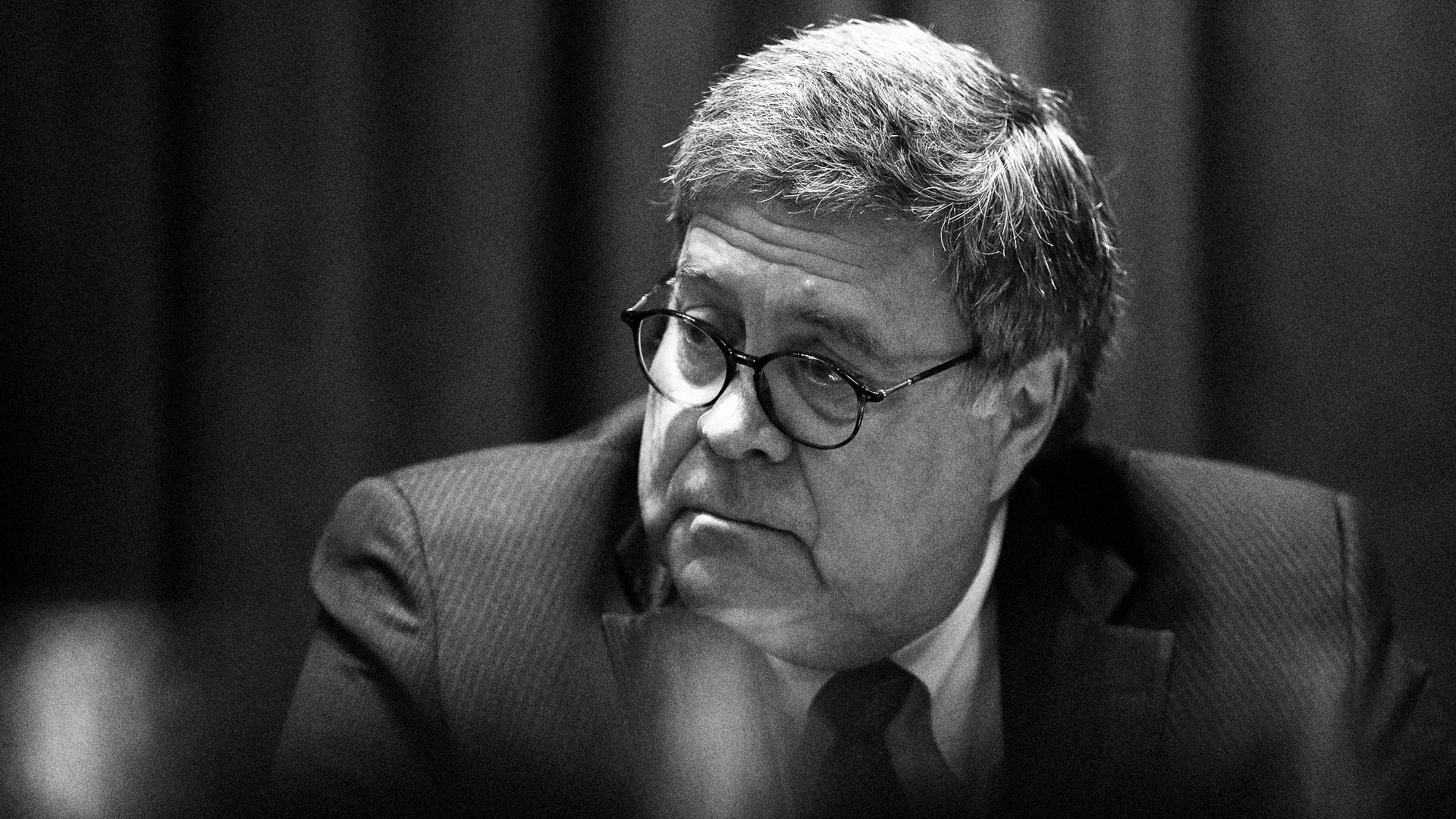The U.S. Department of Justice could announce an antitrust case against Google as early as this week, The New York Times‘s Katie Benner and Cecilia Kang report. Attorney General Willam Barr has reportedly been pushing DOJ attorneys to wrap up its investigation of Google’s parent company, Alphabet, which has been going on since last summer.
But the Times reports that the majority of the 40 or so lawyers conducting the investigation have pushed back, saying they need more time to bring a strong case. Some expressed fears that Barr, an openly political animal, is rushing the case along so that that the Trump administration appears to be taking action against Big Tech before voters decide whether to reelect him November 3.
There aren’t many other plausible explanations for Barr’s actions. The Google business practices under investigation have been going on for years; there’s no impending harm that needs immediate redress. Moreover, while it would be understandable if an attorney general felt an obligation to get a case filed under the current administration, Barr seems fixated on getting a case filed by the election, not by January 20, 2021. That suggests a political motive.
Barr may win some political points for Trump by hurrying the DOJ’s case, but he might also hamstring the government’s biggest chance in years to rein in monopolistic behavior by tech giants such as Google.
“If I’m the case manager, and if you convinced me that taking another couple of months is going to make the case better, I’ll say take the time,” says George Washington Law School professor and antitrust expert William Kovacic.
The stakes are high for everybody involved.
“It’s going to have a huge economic impact,” Kovacic says. “It will potentially have a big impact on the reputation and stature of the Department of Justice, and with that in mind, there is no magic to bringing the case October 1, November 1, December 1, or January 1.”
Narrow scope
The tight time frame imposed by Barr may have already greatly narrowed the scope of the DOJ’s case. The Times quoted unnamed DOJ antitrust lawyers saying they had confined their case to Google’s dominance in internet search. They had collected large amounts of evidence on Google’s dominance in internet advertising, but believe part of the antitrust charges focused on search may represent their best chance in court given the tight time frame.
Even with a limited focus, the DOJ attorneys may still need more time. Because of the way U.S. antitrust laws are written, and because of the way U.S. courts interpret them, big-time antitrust cases in the U.S. are very hard to win.
“The real question in this case is whether consumers are better off or worse off,” Kovacic says. “That’s what U.S. antitrust law is concerned with—not the impact on individual firms, but the impact on consumers.”
It will not be enough to make general arguments about how Google’s sheer size stifles competition.
To overcome these arguments, the DOJ will have to provide both witness testimony and data showing concrete examples of ways Google has shut out competitors and harmed consumers.
It will not be enough to make general arguments about how Google’s sheer size stifles competition. While there are those in the legal community who believe that antitrust law should address the tacit or potential harms caused by the “bigness” of companies like Google, the courts have so far not seen it that way.
But the courts are concerned about applying existing law to cases. Antitrust claims that have found relief in the law are more traditional ones, such as situations where a company releases a new product and bundles it with an already-successful one as a way of cutting off competition. The DOJ will have to show ways in which Google is dominating its markets by means other than just having good products or being a big company.
The DOJ lawyers, Kovacic says, may have asked for more time because they felt they could not yet reach that bar. They may need more time to talk to more consumers who have been harmed by Google, or to interview Google competitors that have been harmed.
And because of the coverage of the DOJ’s case during September, this may be the time when the best witnesses would come forward. Kovacic says that as it becomes more apparent that the agency will indeed bring a case, witnesses tend to become more willing to stick their necks out and talk against giants like Google. They become more willing to risk retribution from Google if they believe their testimony will actually help bring about fairer market conditions.
A large group of state attorneys general are also working together on an investigation into Google’s alleged anticompetitive practices. This could factor into the time needed by the DOJ to bring its case. Kovacic believes the state AGs may want to bring a broader case, covering more of Google’s businesses and business practices, than the DOJ’s case. He adds that it’s also possible that the states will eventually combine their case with the DOJ’s rather than bring a separate action.
But once the DOJ files with the court, its lawyers will have to work with their case as written. Any weak spots in the way it defines Google’s practices or its role in the market may be seized upon and exploited. A loss of that magnitude may seriously spoil the DOJ’s appetite for another go at Big Tech for years to come.
If hurrying to file the DOJ’s case gives Trump the look of a strong leader standing up to Big Tech and helps him get reelected, Barr may be happy. But if it weakens the case against Google, many others—including the company’s competitors, consumers, and the DOJ lawyers who are serious about helping create fair markets—may lose.
Recognize your brand’s excellence by applying to this year’s Brands That Matter Awards before the final deadline, June 7.
Sign up for Brands That Matter notifications here.
